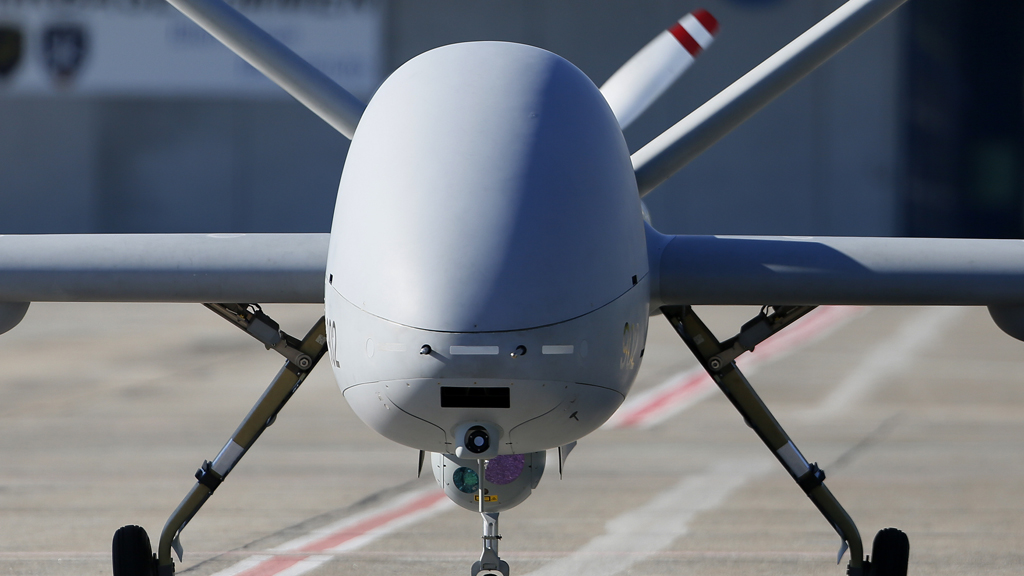Drone warfare: UN to examine civilian deaths
The United Nations launches an inquiry into the extent to which drones, the unmanned military weapon favoured by the United States in its “war on terror”, cause civilian deaths.

The inquiry, announced on Thursday by Ben Emmerson QC, the UN special rapporteur on counter-terrorism and human rights, will “look at the evidence that drone strikes and other forms of remote targeted killing have caused disproportionate civilian casualities in some instances.”
Drones are estimated to have killed more than 1,000 civilians in Pakistan, Yemen and Somalia. Their use by the US has accelerated under President Barack Obama’s tenure, and in total around 10,000 are estimated to be deployed in 11 states across the planet.
Earlier this month, Pakistani militant Mullah Nazir, who sent insurgents to fight American forces in Afghanistan, was killed by a US drone strike. And whilst the US is the Western state that most commonly deploys them, other countries invest in the capability, including the UK.
Exponential rise
Mr Emmerson (pictured, right) said: “The inquiry that I am launching today is a direct response to the requests made to me by states at the Human Rights Council last June, as well as to the increasing international concern surrounding the issue of remote targeted killing through the use of UAVs (unmanned aerial vehicles).

“The exponential rise in the use of drone technology in a variety of military and non-military contexts represents a real challenge to the framework of established international law and it is both right as a matter of principle, and inevitable as a matter of political reality, that the international community should now be focussing attention on the standards applicable to this technological development, particularly its deployment in counterterrorism and counter-insurgency initiatives, and attempt to reach a consensus on the legality of its use, and the standards and safeguards which should apply to it.”
He added that, “given that the technology is routinely deployed against targets that are deeply embedded in civilian communities, within the tribal areas of Pakistan and Yemen for example, concerns have been raised that there is an unacceptably high risk of ciivlian casualties.”
Legal argument
The legality of drone strikes is currently being debated in the UN.
The US argues that drone strikes are necessary to tackle the stateless threat of global terrorism – a position which is heavily disputed by most states and international lawyers outside the US.
Mr Emmerson said the inquiry will look at 25 case studies across Pakistan, Yemen, Somalia, Afghanistan and the Occupied Palestinian Territories. There will be three phases to the inquiry: evidence-gathering, consultation with states involved, and then the drafting of the final report – which will be presented to the UN General Assembly in October.
It will make recommendations to the states involved with regards to conducting their own investigations into civilian deaths as a result of drone strikes.
Ten experts have been appointed to the investigative team, among them the former director of public prosecutions in England and Wales Lord Macdonald of River Glaven QC, Professor Sarah Knuckey of New York University who authored Life Under Drones, and Abdul-Ghani Al-Iryani, a political analyst aand development consultant in Yemen who leads the Democratic Awakening movement.
As a part of the investigation, the UN group will conduct a number of country visits including to Pakistan, Yemen and the Sahel, where there is mounting evidence to suggest drone warfare may be used.
-
Latest news
-
As India goes to the polls in the world’s largest election – what do British-Indians think?6m

-
Tees Valley: Meet the candidates in one of the biggest contests coming up in May’s local elections4m

-
Keir Starmer says public sector reform will be a struggle7m

-
Nicola Sturgeon’s husband Peter Murrell charged with embezzlement of funds from SNP1m

-
Ukraine might finally get $60billion in American weapons and assistance to defend against Russia3m

-





